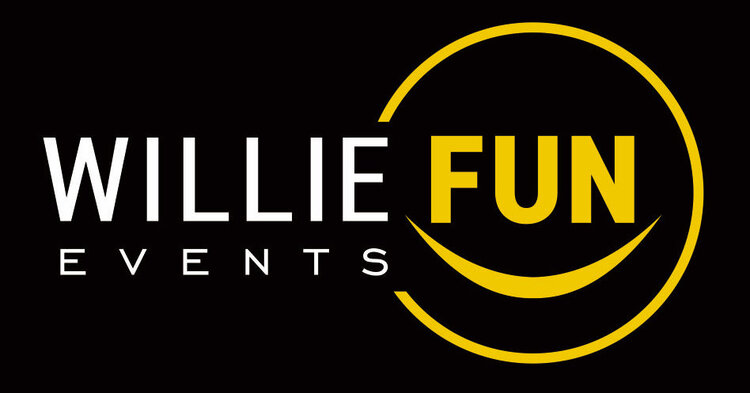Event technology rentals in Milwaukee, Madison, Green Bay, and Chicago
The events landscape is evolving rapidly—and technology is at the heart of this transformation. In 2025, cutting-edge tools and platforms are not only enhancing attendee experiences but also streamlining event management, driving engagement, and boosting ROI. In this blog, we explore the top event tech trends you need to know to stay ahead of the curve.
1. AI and Automation in Event Management
Artificial Intelligence (AI) is revolutionizing how events are planned and executed. Key applications include:
Personalized Experiences: AI algorithms analyze attendee data to deliver tailored agendas, session recommendations, and networking opportunities.
Automated Logistics: Registration, scheduling, and post-event follow-ups are streamlined with automation tools, reducing manual workload and increasing efficiency.
Chatbots and Virtual Assistants: These provide real-time support during live events, answering FAQs and guiding attendees throughout the experience.
By automating routine tasks, event professionals can focus on creating innovative, high-value experiences.
2. Augmented Reality (AR) and Virtual Reality (VR)
AR and VR are reshaping the way we experience events:
Immersive Engagement: Attendees can explore virtual booths, interact with digital overlays, or even participate in fully immersive VR environments.
Enhanced Hybrid Experiences: These technologies bridge the gap between physical and virtual, making hybrid events more interactive and engaging.
Interactive Enhancements: From AR-enabled venue maps to VR product demonstrations, these tools add an extra layer of interactivity that captivates audiences.
Incorporating AR and VR into your event strategy can create unforgettable, multi-sensory experiences.
3. Interactive Mobile Event Apps
Mobile technology remains essential for modern events:
Real-Time Updates: Dedicated event apps provide live schedules, speaker bios, and venue maps.
Networking Features: In-app messaging, virtual meeting rooms, and interactive forums enable attendees to connect seamlessly.
Gamification: Quizzes, leaderboards, and challenges enhance engagement and inject a fun, competitive spirit into the event.
A robust mobile platform ensures that every attendee stays informed and connected, no matter where they are.
4. Data-Driven Personalization and Analytics
Leveraging data is key to creating truly personalized event experiences:
Customized Content: Analyze attendee behavior to tailor sessions, communications, and recommendations.
Real-Time Analytics: Monitor engagement, track session attendance, and gather feedback to make on-the-fly improvements.
Predictive Insights: Use historical data and machine learning to forecast trends and optimize future events.
A data-first approach empowers event organizers to deliver highly relevant and impactful experiences that drive measurable results.
5. Advanced Connectivity and IoT Integration
The rise of 5G and IoT is unlocking new possibilities in event technology:
Enhanced Connectivity: Faster internet speeds ensure smooth live streaming, real-time interactions, and flawless digital experiences.
Smart Venues: IoT devices can monitor everything from energy use to crowd flow, helping optimize venue operations and enhance safety.
Wearable Technology: Devices that track attendee engagement and behavior provide invaluable data for post-event analysis.
These advancements not only improve operational efficiency but also enrich the attendee experience by creating a seamlessly connected environment.
6. Enhanced Security and Privacy Measures
As events become increasingly digital, ensuring data security is paramount:
Cybersecurity Protocols: Advanced encryption and secure authentication methods protect attendee information.
Compliance with Regulations: Adhering to global data protection standards like GDPR builds trust and safeguards your reputation.
User-Friendly Security Features: Implementing biometric and multi-factor authentication ensures that only authorized users access event platforms.
A strong focus on security not only protects sensitive data but also enhances overall attendee confidence.
7. Social Integration and Community Engagement
The integration of social media into event tech is more critical than ever:
Live Social Feeds: Real-time social walls and hashtag integrations keep the conversation buzzing during the event.
Content Sharing: Encourage attendees to share their experiences on platforms like Instagram, TikTok, and LinkedIn to expand your reach.
Post-Event Communities: Online forums and dedicated groups foster continuous engagement long after the event has ended.
Building a vibrant community around your events amplifies engagement and creates lasting connections.
Event technology rentals in Wisconsin and Illinois
Conclusion
The event tech trends shaping 2025 are set to revolutionize the industry by making events more interactive, personalized, and efficient. From AI-powered automation and immersive AR/VR experiences to data-driven personalization and advanced connectivity, these trends are creating new opportunities for event planners to innovate and excel.
By embracing these technologies, you can create dynamic, engaging events that not only meet the evolving needs of your audience but also position your brand as a leader in the industry.
Ready to elevate your next event? Connect with us at Willie Fun Events and discover how our cutting-edge event tech solutions can transform your events into unforgettable experiences.





